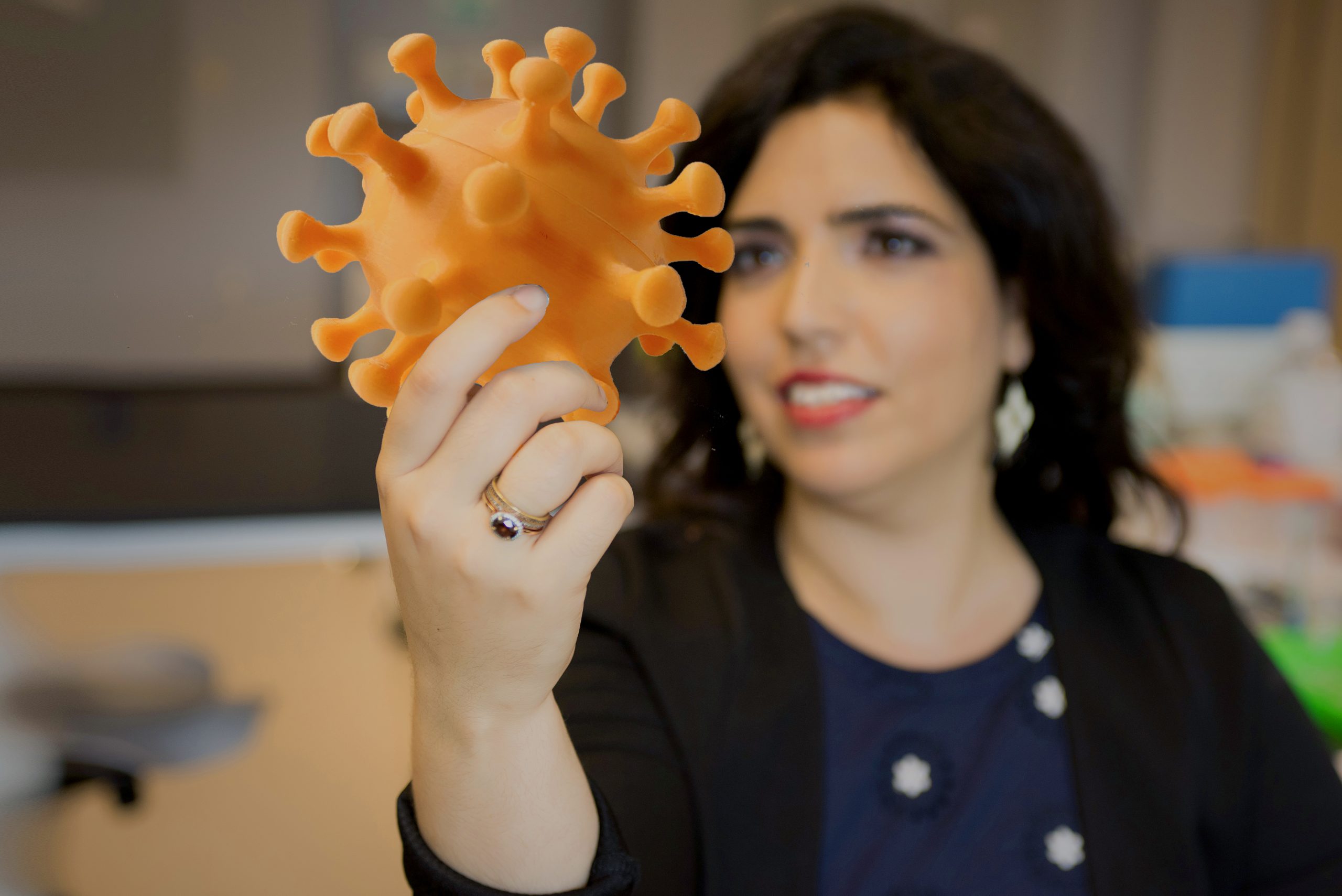UNC-Chapel Hill researcher Ronit Freeman wins support to capture and disable coronavirus spikes.

The COVID-19 pandemic highlights the critical need to work collaboratively and rapidly to unleash breakthrough solutions.
Ronit Freeman, an associate professor of applied physical sciences and biomedical engineering in the College of Arts & Sciences, is working with two interdisciplinary teams and received a total of $275,000 through the Research Corporation for Science Advancement’s COVID-19 Initiative: Detecting and Mitigating Epidemics.
The main focus of Freeman and her co-investigators is the crown of spikes decorating the virus as they are the key components that unlock viral entry to host cells. How coronaviruses enter cells is an important determinant of viral infectivity and a major target for host immune surveillance and human intervention strategies. The team will employ computational models of different spike structures along the infection pathway and develop “molecular cages” that will effectively lock the spike conformations in place. These new capture agents have the potential to block virus entry and effectively stop it at the gate. Freeman will work with Rommie Amaro, professor of chemistry and biochemistry at UC San Diego, and Carlos Simmerling, a chemistry professor at Stony Brook University.
Freeman will also partner with Zachary Schultz, professor of chemistry and biochemistry at Ohio State University, to establish swift, sensitive and selective technologies to detect COVID-19.
“There is severe urgency for accurate point-of-care detection of COVID-19,” said Freeman. Their technology will utilize peptide and nucleic acid sequences able to trap the viral spikes and generate a unique surface-enhanced Raman scattering (SERS) signal. Their goal is to have a working COVID-19 handheld sensor in a few months. By simplifying testing, Freeman hopes to be able to put diagnostics into the hands of people everywhere — without the need for expensive laboratories or expertise.
“I have never been more inspired by how crucial basic and applied science is to this pandemic response”, said Freeman. “I am grateful to the Research Corporation of Science Advancement for providing funding and giving us the opportunity to make a meaningful contribution to help combat coronavirus and establish tools to effectively fight emerging viruses in the future.”
